LINAS Conference 2025: AI Crossroads: Bridging Disciplines for Innovation
Samantha Darrah, Leverhulme Interdisciplinary Network on Algorithmic Solutions Doctoral Scholar

The LINAS Conference 2025 was organised by LINAS Doctoral Scholars Samantha Darrah (2nd Year Scholar, School of Psychology and the School of History, Anthropology, Philosophy and Politics ) and Cecile Harrault (2nd Year Scholar, School of Law and the School of Electronics, Electrical Engineering and Computer Science), with the support of the wider LINAS cohort.
In this blog, Samantha provides an overview of the Conference, which explored the theme of AI Crossroads: Bridging Disciplines for Innovation.
The LINAS Conference took place on 14 April 2025 at Queen’s University. In the fast-paced landscape of AI, boundaries between disciplines are becoming increasingly blurred. The development, implementation, and regulation of AI systems call for a collaborative approach that transcends traditional research boundaries. This Conference sought to rid this compartmentalisation that too often hinders innovation and progress in research and policymaking. By fostering dialogue and collaboration across fields, the Conference aimed to explore the multifaceted challenges and opportunities presented by AI.
We were delighted to welcome more than 25 speakers from 9 different universities including the University of Galway, Liverpool and Barcelona.
Our speakers represented a wide array of disciplines, including law, computer science, social sciences, psychology, astrophysics, and communication studies. In addition to six panels of diverse student presentations, we were thrilled to have two keynote speakers at this year’s Conference, Professor Madalina Busiouc from the Vrije Universiteit Amsterdam and Dr. James Steinhoff from University College Dublin.
Professor Richard English, Director of the Senator George J. Mitchell Institute for Global Peace, Security and Justice, opened the Conference and set the tone for a day of scholarly exchange, critical reflection and interdisciplinary networking. Our first keynote speaker of the day was Professor Madalina Busiouc, Professor of Public Governance and Director of the Graduate School of Social Sciences. Madalina is also the co-Director of the R&I Lab on Artificial Intelligence and Digital Governance at VU Amsterdam. A central theme in her work is the transformation and reinvention of public authority in modern governance, and how institutions of oversight can hold such power to account. Her presentation, "AI for the Public Good: Ensuring Responsible AI in Government and Society", focused on the widespread use of AI in critical government sectors including policing, welfare, and criminal justice, where algorithmic decisions can significantly impact citizens' lives. The empirical evidence provided by her research underscores not only the need for AI systems to be properly interrogated and tested, but also the necessity of deploying AI in a restrained, mindful manner rather than viewing it as a ‘magic bullet’ to solving all problems. Madalina’s talk covered themes and considerations that were highly relevant to all parties interested in the use and deployment of AI, appealing to the interdisciplinary themes that are such a core aspect of LINAS and stimulated much discussion.
Dr. James Steinhoff is an Assistant Professor, Lecturer and Ad Astra Fellow in the School of Information and Communication Studies at UCD. His research focuses on the political economy of algorithmic technologies, data and digital labour and draws on media studies, science and technology studies and labour studies. James gave our second keynote of the day, beginning the afternoon’s proceedings with a thought-provoking talk presenting, “Three theses on AI and Automation”. His talk explored the evolving nature of automation, arguing that it is a gradual, continuous process (accretionary), increasingly relies on synthetic data rather than real-world inputs (synthetic), and transforms rather than replaces human labour by creating new categories of work (labour). Drawing from media theory, political economy, and labour process theory, he critiqued simplistic economic narratives and explored how software-based automation, particularly in machine learning and synthetic data, has reshaped the dynamics of capitalist production. Highlighting roles such as technical artists who automate automation itself, he argues for a deeper understanding of automation’s social implications. This talk challenged us to rethink AI not just as technology, but as a structural force driven by capitalist imperatives.
We also had flash presentations from the First Year LINAS scholars who each provided an overview of their diverse projects.
The First Year Forum was then followed by six panel sessions, each covering the following themes:
- Regulating Algorithms: Law, Ethics and Digital Rights
- Implications of AI in Culture and Creative Industries
- Human-AI Interactions: Empathy, Trust and Power
- Navigating Risks: The Intersection of AI, Security and Society
- AI Technical Innovations: Authentication, Detection and Classification
- Algorithmic Technology in the Public Sector and Urban Spaces
We ended the day with a roundtable discussion focussing on the experience of our third- and fourth-year LINAS scholars regarding the challenges and advantages of interdisciplinary research. This was chaired by Dr Sandra Scott-Hayward who also delivered the closing remarks for the Conference, summarising the valuable and interesting discussion and networking which the day had facilitated.
We were delighted to find that a number of speakers and attendees were returning visitors having taken part in the LINAS PG Conference in previous years. One returning speaker commented:
"I had the chance to attend the LINAS PhD Conference two years in a row, in 2024 and 2025, and I can confidently say it’s a well-organised and supportive conference that really helps you understand what to expect from academic events in your future career. It offers a safe space to present your work, engage with peers on your panel, and receive questions from an interdisciplinary audience. You get to experience interesting coffee break conversations and inspiring keynote talks, which create a welcoming atmosphere. I find it fascinating to see how people develop such interesting research questions and present them in unique ways.
I have also made real friends through these events, and we continue to keep in touch. For that reason, this conference holds a special place in my heart. And, of course, it’s a great chance to explore beautiful Belfast! I would highly recommend this conference to any PhD researcher working in related fields. Thank you to the entire LINAS community!"
We are grateful for the continued support of the Leverhulme Trust and the Mitchell Institute, whose funding made this event possible and look forward to continuing this initiative in the coming years!
Samantha Darrah
Currently in her second year on the LINAS Doctoral Training Programme, Samantha’s project focuses on the use of algorithmic advice in decision-making. Algorithms are increasingly available as decision aids, ranging from the benign, such as route planning, to the influential, such as healthcare treatment and investment advice. While algorithms often generate more accurate predictions than their human counterparts, previous research has exposed a tendency to ignore their recommendations, known as algorithm aversion.
Her research aims to identify strategies to counter and reduce algorithm aversion, employing hybrid intelligence as a tool. While the focus will be on strategies for the average user, she is also interested in researching how individual differences, such as personality, may be correlated with the use of algorithmic advice.
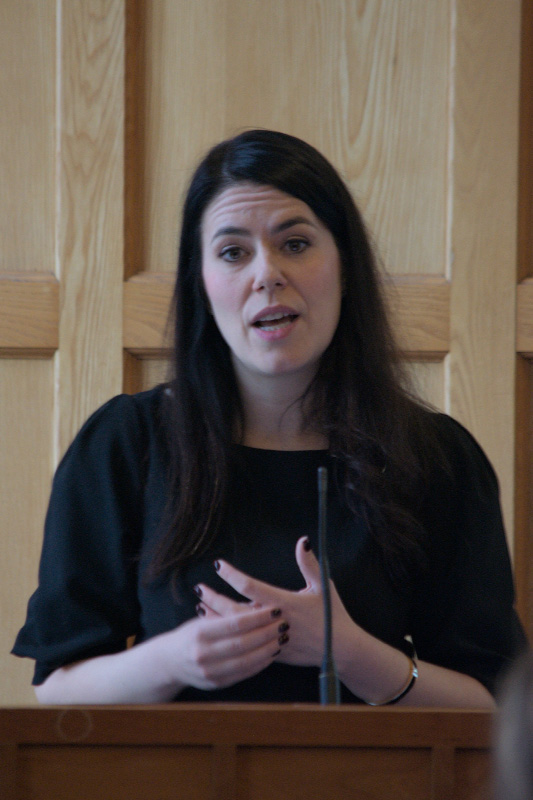
Professor Madalina Busiouc
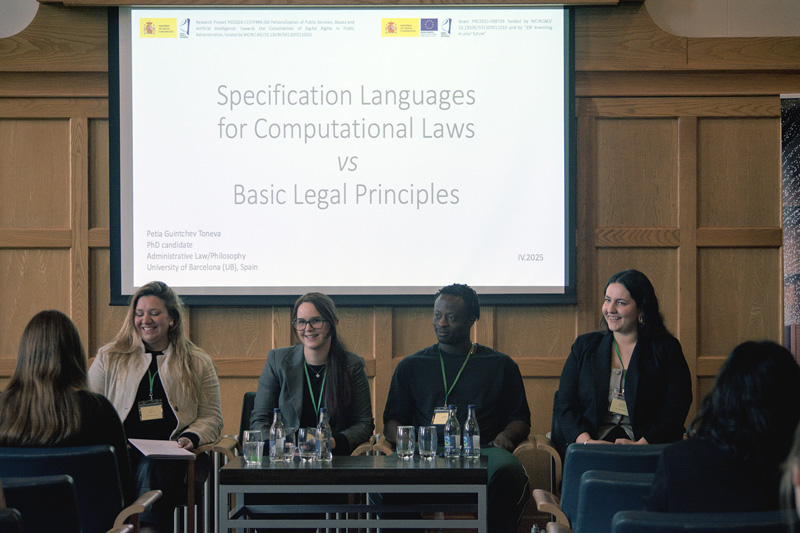
Pictured L-R: Petia Guintchev Toneva, Cecile Harrault, Habeeb Ramos and Anıl Sena Bayındır
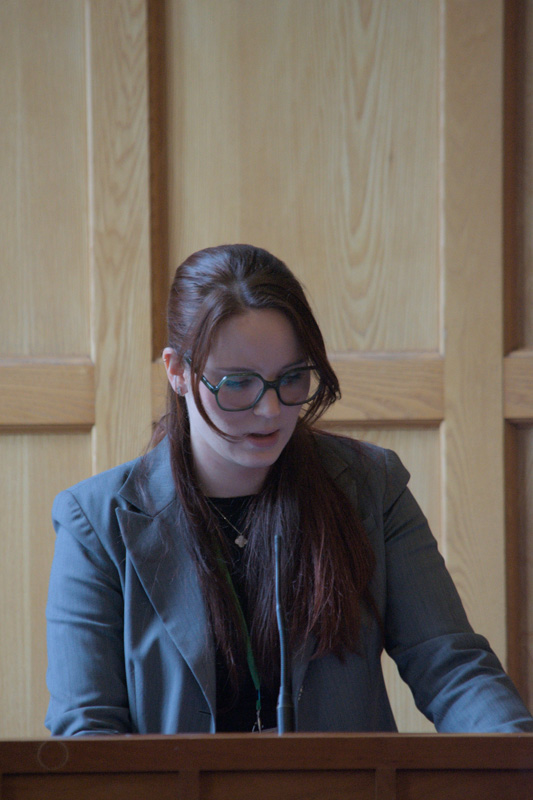
Cecile Harrault
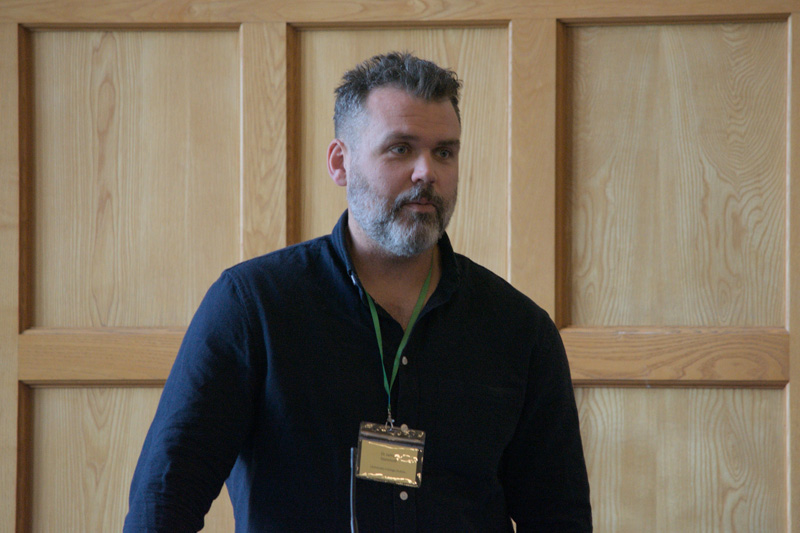
Dr. James Steinhoff
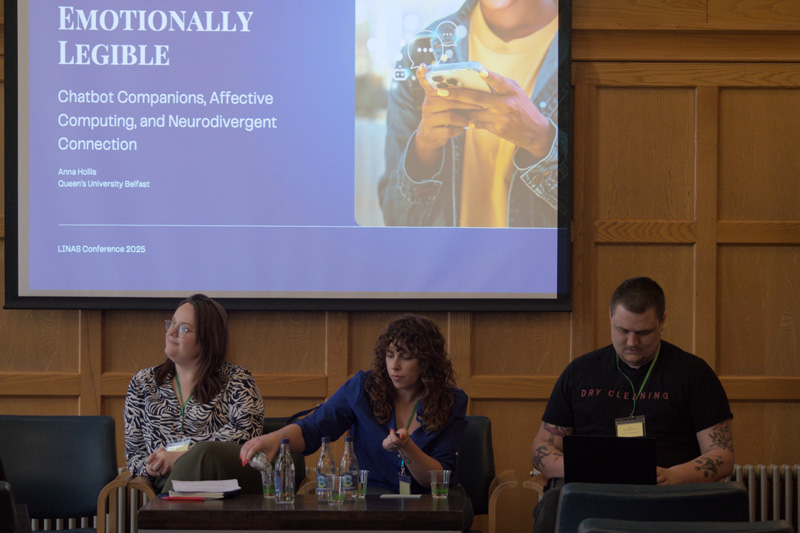
Pictured L-R: Anna Hollis, Samantha Darrah and Cyrus Larcombe-Moore
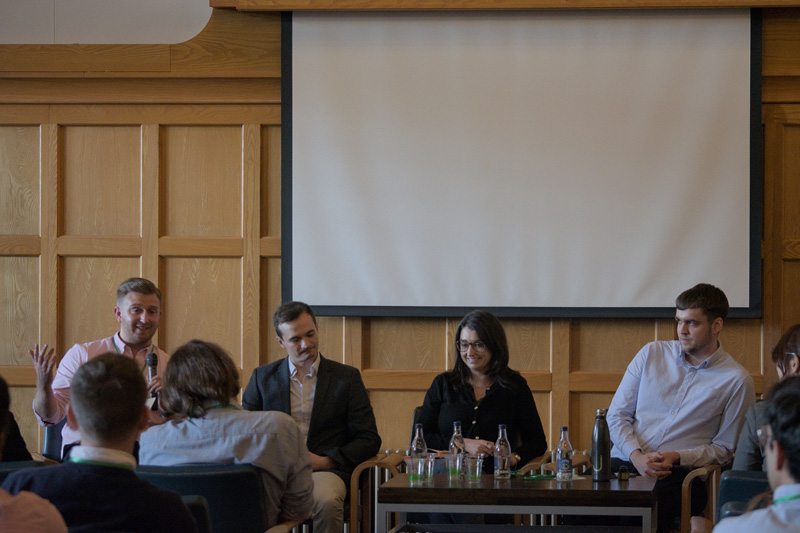
Pictured L-R: James Sweeney, David Mark, Anna Montgomery and Joshua Weston
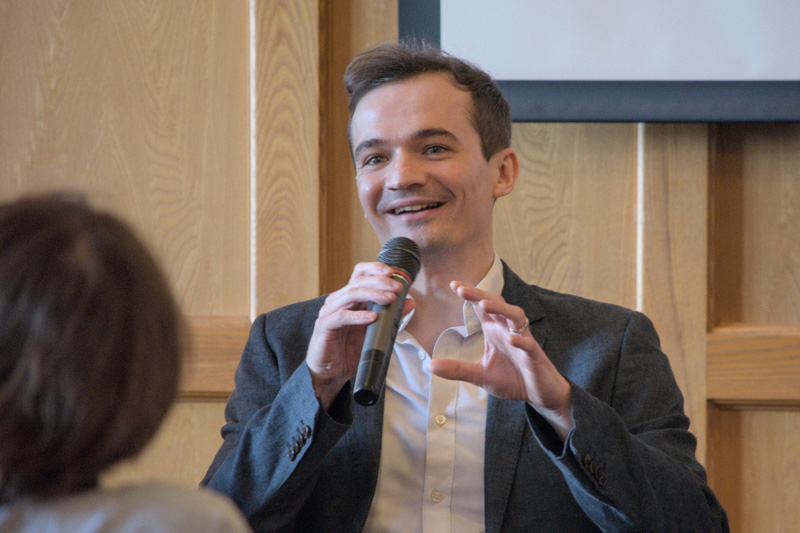
David Mark
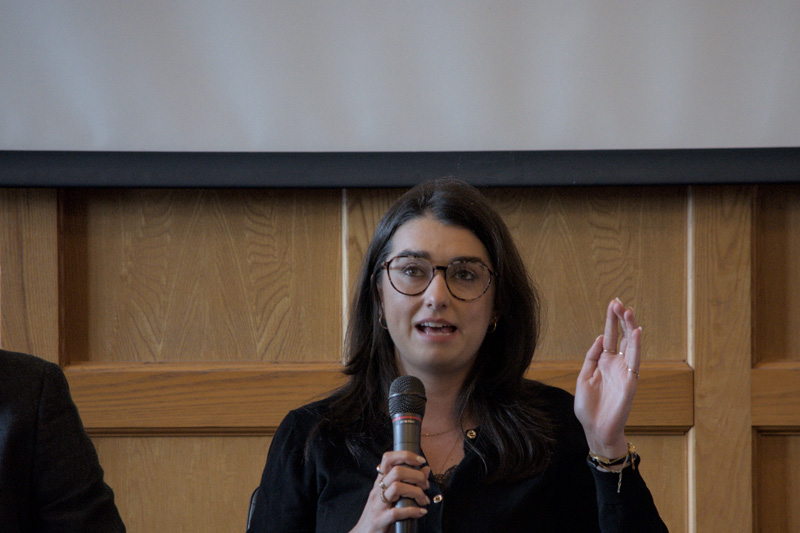
Anna Montgomery
